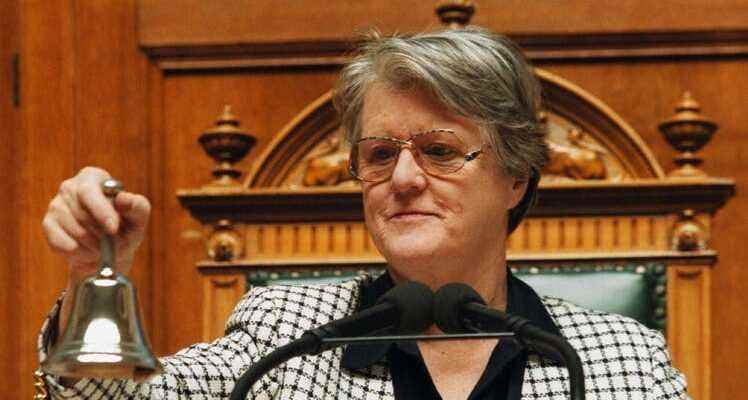Former Lucerne CVP National Councilor Judith Stamm has turned 88. She shaped women’s politics in Switzerland for decades.
The Lucerne CVP representative Judith Stamm campaigned for the weak in society.
Giving in was never an option for Judith Stamm. The lawyer also revealed this trait in what was probably the most controversial hour of her political career. When the CVP nominated Arnold Koller and Flavio Cotti as official candidates to succeed Federal Councilors Kurt Furgler and Alphons Egli in 1986, they did not think of withdrawing their own application. Knowing full well that this would be seen by many as a provocation.
Stamm refused when asked by the CVP faction leader to sign a declaration of loyalty and to support the official candidates. So much rebelliousness went down badly in the male- and tradition-dominated United Federal Assembly. With 49 votes, she still achieved a respectable result.
Policewoman instead of court clerk
The politician, who was born in Schaffhausen in 1934 and grew up in the city of Zurich, learned to fight at an early age. After studying law, the daughter of a Reformed railway official and a Catholic housewife would have liked to have pursued a career as a court clerk. However, she was denied this because political rights were required for this office in the canton of Zurich at the time, and women did not yet have those in the middle of the 20th century.
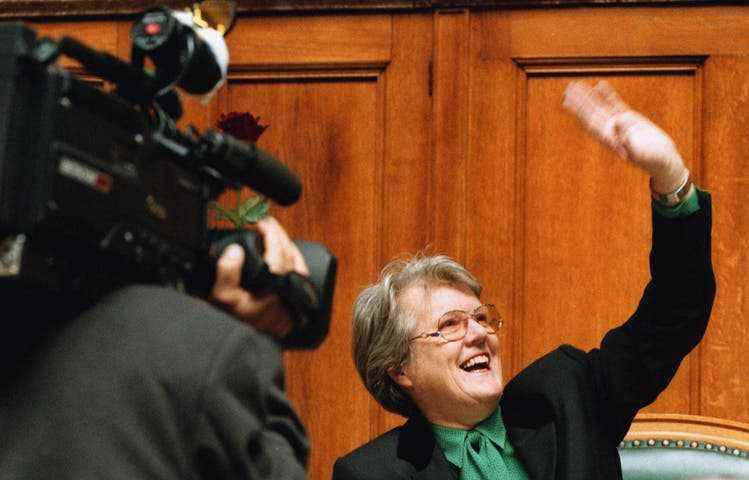
In November 1996, Judith Stamm is happy about her election as President of the National Council.
After this professional disappointment, Judith Stamm joined the police corps of the canton of Lucerne in 1960. Her talent did not remain hidden for long, so that after a short time as a police assistant, she became the first female police officer in Switzerland. She later found a new field of activity in the youth prosecutor’s office. In these functions, Stamm was confronted with the downsides of life, such as violence within families, drug misery, suicides and juvenile delinquency. Her professional work shaped her and ensured that her work was always characterized by a deep humanity.
In politics, Stamm was a pioneer at almost every level. Immediately after the introduction of women’s suffrage, the people of Lucerne elected her to the Lucerne cantonal parliament in 1971 as a representative of the CVP. In 1983 she made it into the National Council. And this despite the fact that she was not an easy member from the party’s point of view. To the annoyance of the conservative establishment, she campaigned for a time limit solution and the lowering of the age of consent to 16 years. Straightforwardness and an open ear for the weak marked her life.
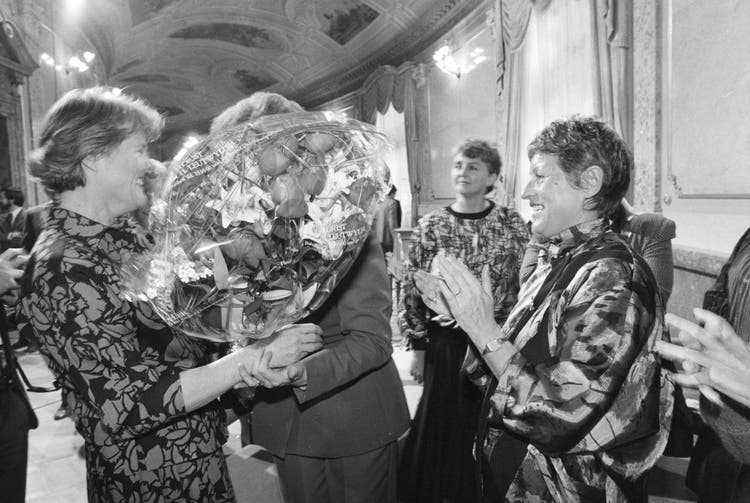
Thanks to the support of many women, Judith Stamm (left) was nominated as a candidate for the Federal Council in 1986.
During the 16 years in the National Council, Stamm fought with full commitment for women’s rights. In 1983, for example, she submitted a request for the implementation of the equality article in the federal constitution. This ultimately led to the founding of the Federal Office for Gender Equality five years later. In 1989, the Federal Council elected her President of the Federal Commission for Women’s Issues. The NZZ therefore once described her as an “icon of the Swiss equality movement”.
Influential National Councilor
In the 1980s and 1990s, Judith Stamm was one of the defining figures under the federal dome, whose work went far beyond gender equality policy. When the CVP politician campaigned for a cause, she was often able to forge coalitions across party lines.
In 1987, with a motion, she ensured that the Federal Council had the number of children in Switzerland who were mentally, physically and sexually abused examined for the first time. The Lucerne native also left her mark as President of the National Council in 1996/1997 – although she found the office a burden, as she later admitted. As the highest-ranking Swiss woman, she asserted that in future the office must be addressed with “President” instead of “President” if a woman heads the large chamber.
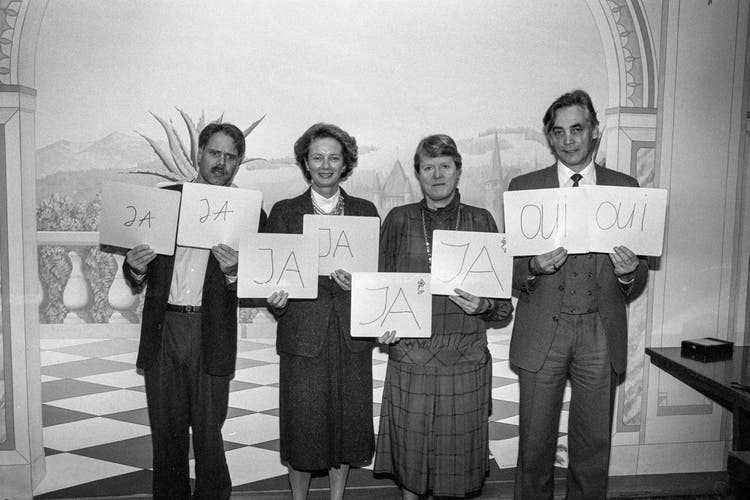
Judith Stamm (third from left) was one of the most influential politicians of her generation in the Federal Palace. Our picture shows her with Moritz Leuenberger, Monika Weber and Vital Darbellay (from left).
Even after her retirement from institutional politics, Stamm was committed to equality. Sometimes she couldn’t understand why young women parliamentarians weren’t as committed to women’s rights as they were. “Sometimes I was like a soldier in the trenches who doesn’t notice that there is peace,” she explained in an interview in 2013. It bothered her that many women still shy away from entering politics because they doubted whether they were even fit for a political office.
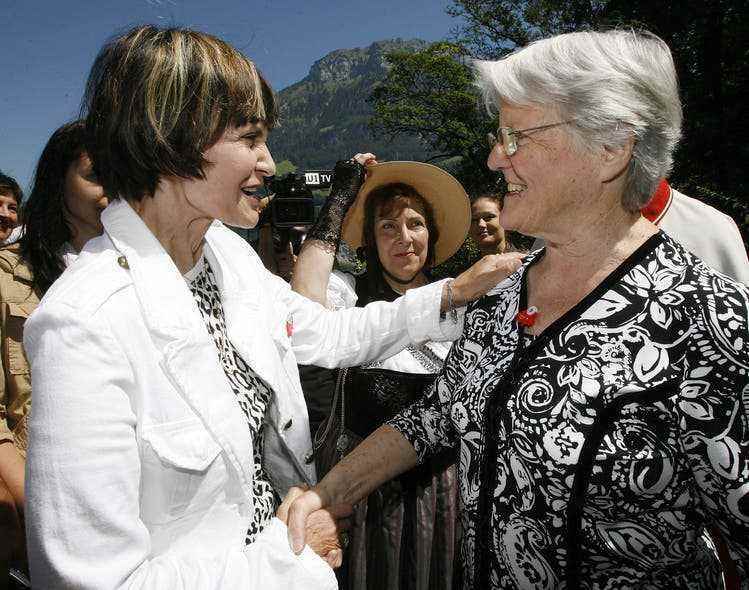
Fighters for women’s rights: Judith Stamm (right) welcomes the then Federal President Micheline Calmy-Rey on the Rütli in 2007. In the background, President of the National Council Christine Egerszegi.
From 1998 to 2007, Judith Stamm chaired the Swiss Non-Profit Society (SGG) and the Rütli Commission, which organizes the federal celebrations on the Rütli meadow. She was the first woman to head the venerable organization, which was founded in 1810. Even in this position she was not allowed to rest. Due to disruptive actions by right-wing extremists, the SGG had to restrict access to the Rütli meadow during these years. When she resigned as SGG President in autumn 2007, Stamm, along with two other central Swiss politicians and SGG members, was the target of bomb attacks on mailboxes. Nobody got hurt.
Judith Stamm died on July 20, 2022 in Lucerne after an eventful life.
